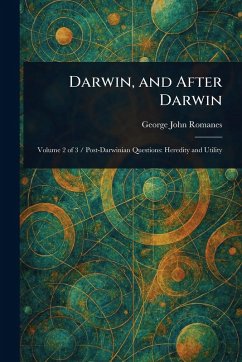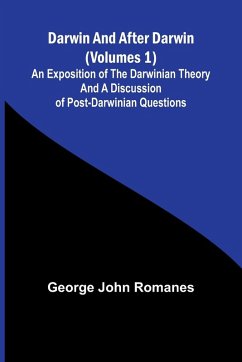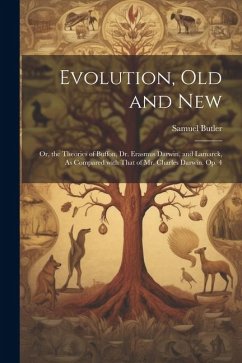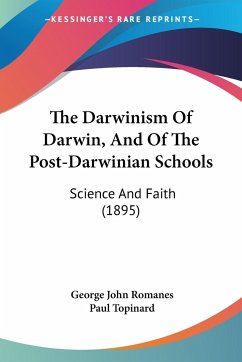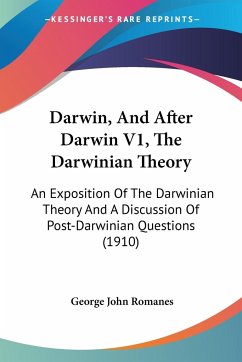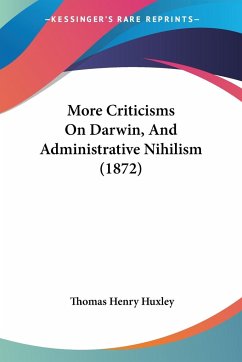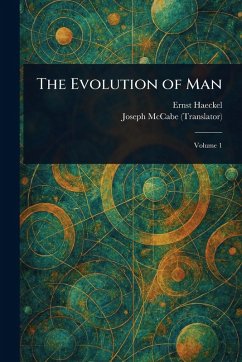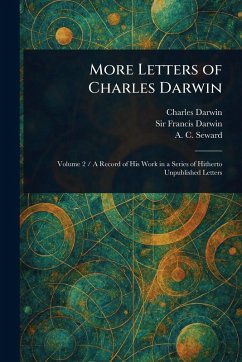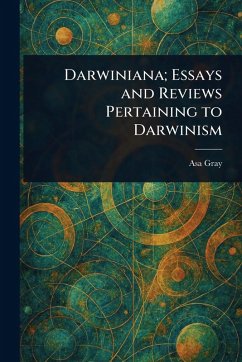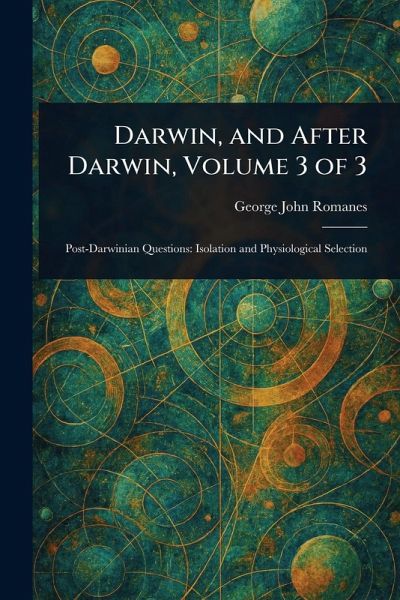
Darwin, and After Darwin, Volume 3 of 3

PAYBACK Punkte
9 °P sammeln!
Dive into the ongoing discussion sparked by Charles Darwin's groundbreaking theories with "Darwin, and After Darwin (Vol 3 of 3): Post-Darwinian Questions: Isolation and Physiological Selection" by George John Romanes. This volume meticulously explores the intricacies of heredity and evolution, delving into crucial post-Darwinian questions. Romanes investigates the significant roles of isolation and physiological selection in the evolutionary process. A vital contribution to the science of the late 19th century, this work examines the mechanisms behind natural selection and its impact on the d...
Dive into the ongoing discussion sparked by Charles Darwin's groundbreaking theories with "Darwin, and After Darwin (Vol 3 of 3): Post-Darwinian Questions: Isolation and Physiological Selection" by George John Romanes. This volume meticulously explores the intricacies of heredity and evolution, delving into crucial post-Darwinian questions. Romanes investigates the significant roles of isolation and physiological selection in the evolutionary process. A vital contribution to the science of the late 19th century, this work examines the mechanisms behind natural selection and its impact on the diversity of life. Explore the historical context surrounding the development of evolutionary thought, as this book dissects some of the key concepts debated after Darwin's initial publications. Essential reading for anyone interested in the history of science, evolutionary biology, and the ongoing quest to understand the origins of species. This edition ensures that Romanes's insights remain accessible. This work has been selected by scholars as being culturally important, and is part of the knowledge base of civilization as we know it. This work is in the public domain in the United States of America, and possibly other nations. Within the United States, you may freely copy and distribute this work, as no entity (individual or corporate) has a copyright on the body of the work. Scholars believe, and we concur, that this work is important enough to be preserved, reproduced, and made generally available to the public. We appreciate your support of the preservation process, and thank you for being an important part of keeping this knowledge alive and relevant.





